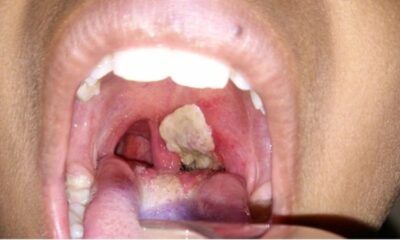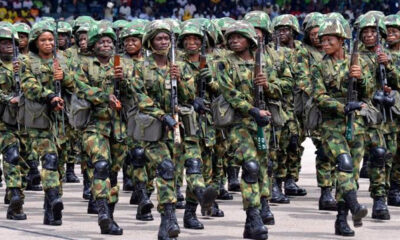metro
Help Nigeria To Free Abducted Train Passengers, N/Assembly Begs China

The National Assembly Joint Committee on Land Transportation yesterday begged the Chinese government to help Nigeria in rescuing the 62 abducted victims of the March 28, Abuja-Kaduna train attack.
The Chairman, Senate Committee on Land Transportation, Senator Abdulfatai Buhari, who spoke on behalf of the committee during an oversight visit to the Obafemi Awolowo Train Station in Ibadan, Oyo State capital, expressed sadness over the failure to rescue the victims 45 days after.
The lawmaker, who represents Oyo North in the National Assembly, said the attack had created fear in the minds of Nigerians who had started embracing railway.
He said there was nothing wrong with the Chinese government coming to the aid of Nigeria to rescue the victims since it was actively involved in railway projects in Nigeria.
Daily Trust reports that the 159km Abuja-Kaduna train line was constructed by the China Civil Engineering Construction Corporation (CCECC) – a construction giant in China funded by the China Export and Import Bank.
He said, “The Chinese government makes money from the many rail projects that are being handled by CCECC in Nigeria, so asking them to help us is not out of place.
“Nigerians are no longer ready to listen to the number of passengers that have been carried by the trains since they were commissioned. Nigerians are not interested in what has been put in the various stations by the CCECC. What we want to hear now is the effort being put into rescuing those people in captivity.
“If a Chinese national was among those people abducted, we know that the Chinese government would have come to rescue him.
“I remember when an American was kidnapped, the Americans came and took him away from where he was held captive. We know that with the level of technology that the Chinese have, even without leaving Beijing, they can help us track where these people are, or even give us enough intelligence that would aid their rescue.”
The Director of Operations of NRC, Mr Niyi Ali, who represented the Managing Director, Fidet Okhiria, said the corporation was working with the security agencies to secure the release of those in captivity.
He disclosed that the corporation was deploying technology and increasing policing on the Abuja-Kaduna rail by the time the service resumed.
The Deputy Managing Director of CCECC and Project Manager, Xia Lijun, also expressed sadness over the attack.
In response to the call by the lawmakers, he said the CCECC as a corporation was not operating on behalf of the Chinese government, but prayed for improved security in Nigeria to prevent a recurrence.
DAILY TRUST
metro
Ex-LG chair challenges El-Rufai’s claims on council funds
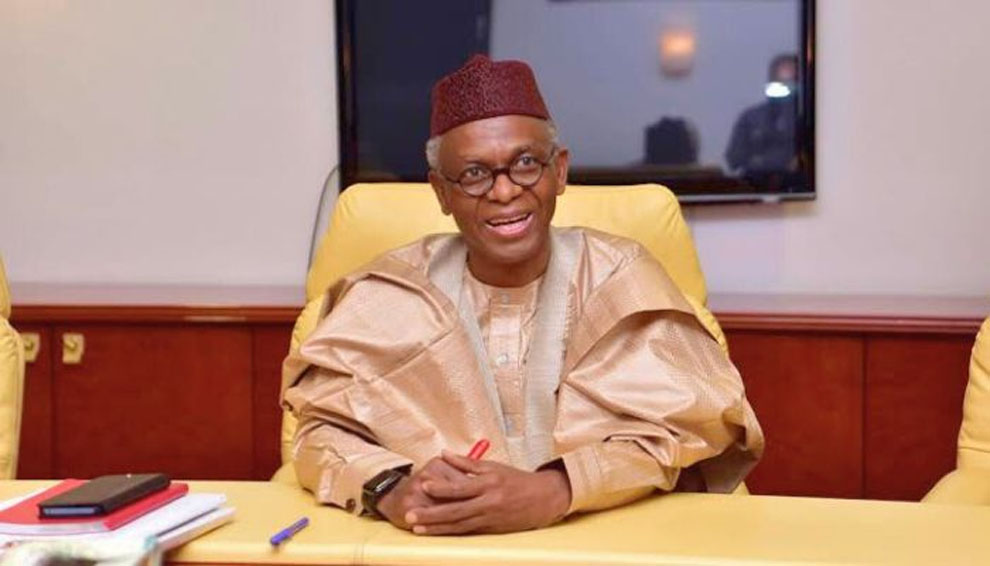
Ex-LG chair challenges El-Rufai’s claims on council funds
Former Secretary of the Association of Local Governments Of Nigeria (ALGON), Kaduna State chapter, Alhaji Kabiru Jarimi, has refuted ex-Governor Nasir El-Rufai’s claim that he never interfered with Area Councils’ funds during his tenure.
Jarimi, who served under El-Rufai’s administration, described the claim as misleading, stating that funds were routinely deducted from councils’ allocations under various guises by the previous government.
The ex-ALGON State Secretary, who is also the former Chairman of Kaduna South local government, disclosed this in an interview over the weekend.
“I was shocked by El Rufai’s comment because local government funds were deducted without our approval. Most of the deductions targeted Southern Kaduna LGAs.
READ ALSO:
- Some ladies in movie industry ready to sleep their way to fame — Jide Kosoko
- Gunmen abduct Catholic priest in Anambra
- Adeleke University didn’t suspend Muslims for praying – MSSN
“We never got our full allocations under El-Rufai. His government kept introducing policies to deduct funds unnecessarily. I even considered resigning. At times, we had no funds for overhead costs after paying salaries,” he recalled.
Jarimi, who said that El-Rufai justified the deductions as necessary to settle workers’ salaries, further noted that the state government also employed various means to withdraw additional funds.
The former Council Chairman cited the creation of the Kaduna Capital Territory Authority, Zaria Metropolitan Authority and Kafanchan Municipal Authority as a means of shortchanging local governments.
“Salaries were shared 60–40 between the capital territories and LGs around them. In Kaduna South, deductions were made in the name of sanitation, forcing us to remit funds to the Kaduna Capital Territory Authority (KCTA) every month,” he stated.
The former Chairman further alleged that the funds of local governments outside the capital territories were also deducted without explanation, citing deductions for security and ‘riot damage.’
Ex-LG chair challenges El-Rufai’s claims on council funds
metro
Gunmen abduct Catholic priest in Anambra
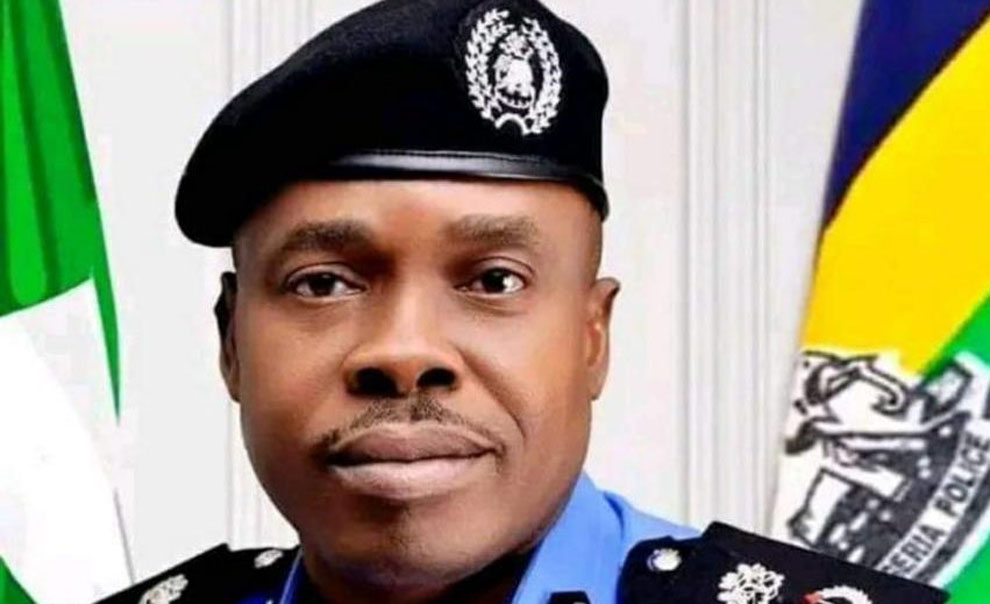
Gunmen abduct Catholic priest in Anambra
A Catholic priest, Rev. Fr. Stephen Echezona of St. Patrick Church, Ichida, has been reportedly abducted by gunmen in Anambra State.
According to a report by security analyst and counter-insurgency expert, Zagazola Makama, the incident occurred around 6:00 p.m. on Saturday when four armed men, operating in a white Lexus 330 SUV with an unknown registration number, intercepted the cleric and whisked him away along with his Toyota Highlander SUV.
READ ALSO:
- Adeleke University didn’t suspend Muslims for praying – MSSN
- Juventus to sign Osimhen with player-plus-cash offer
- Police inspector kills one, injures two, holds colleagues hostage in Calabar
A joint team of security operatives and local vigilantes (AVG) were said to have responded swiftly to the attack, pursuing the assailants and engaging them in a gun duel at a road intersection between Oraeri and Akwaeze villages.
Though the criminals managed to escape, their Lexus SUV sustained significant damage, including a shattered rear windshield.
The Anambra Police Command is yet to release a statement on the abduction of the priest.
Gunmen abduct Catholic priest in Anambra
metro
Adeleke University didn’t suspend Muslims for praying – MSSN
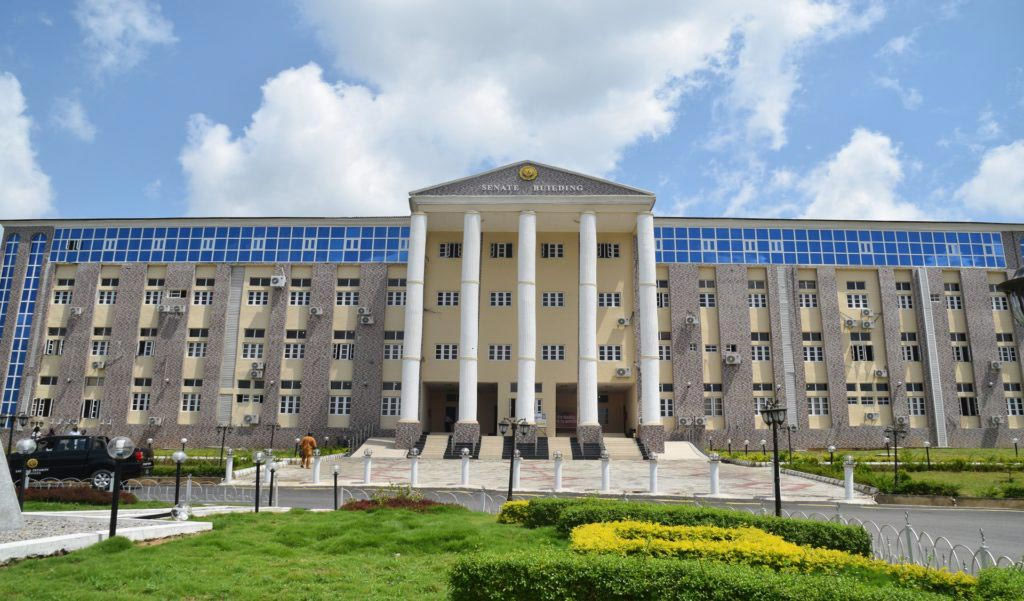
Adeleke University didn’t suspend Muslims for praying – MSSN
The Muslim Students’ Society of Nigeria (MSSN), Adeleke University Branch, Ede, Osun State, has described as “fake news” a statement credited to MURIC which alleged the suspension of a Muslim student of the university over Friday prayers.
The association, in a statement signed by its Ameer, Imran Adigun AbdulHakeem, on Sunday, said MURIC’s reports circulated on social media were a misrepresentation of happenings within the university, saying “our faith is respected by the management.”
In another letter, the association apologised to the director and facilitator of the university, Chief (Mrs) Dupe Adeleke-Sanni, whom the association credited with providing a conducive atmosphere for Muslim students to practise their faith.
The letter reads: “On behalf of the Muslim Students Society of Nigeria (MSSN), Adeleke University Chapter, [I] write to address the ongoing misinformation circulating on social media and other platforms regarding the suspension of Muslim Students for praying on Campus.
“On the 14th of March, 2025, we were temporarily suspended from observing our Night Ramadan Prayers (Taraweeh) and Jummat prayers on campus on the orders of the Director of Security Service (DSS).
“However, on the 18th of March, we met with Dr. Mrs. Modupe Adeleke regarding these challenges.
READ ALSO:
- Juventus to sign Osimhen with player-plus-cash offer
- Police inspector kills one, injures two, holds colleagues hostage in Calabar
- Fresh explosion rocks gas facility in Rivers
“She provided us with a place where we could observe Ramadan, Jummat prayers, and the five daily prayers which we accepted. As a result, the suspension has been lifted, and we have resumed prayers at the new location provided by the university on the orders of Dr Modupe Adeleke.
“At no time have Muslim Students been forced to change their beliefs. While challenges may arise in any diverse academic institution, the university management has always been open to dialogue, and we have continued to receive support in practicing our faith.
“Adeleke University has provided a peaceful and respectful environment for all faiths, and we continue to practice our religion freely.
“We urge the public to disregard the misinformation that may have been spread regarding this matter as they do not reflect the reality of our experiences,” the letter to the university management noted.
The letter of apology to Chief (Mrs) Dupe Adeleke-Sanni reads: “As-salamu alaykum (peace be upon you). On behalf of the Muslim Students’ Society of Nigeria (MSSN), Adeleke University Chapter, I apologize for any distress caused by the false social media reports.
“We assure you that we had no hand in spreading the misinformation. We are deeply grateful for your unwavering support, guidance, and kindness towards us.
“Your commitment to our well-being and academic success is invaluable, and we appreciate everything you’ve done for us. May Allah (SWT) reward you abundantly for your good deeds. Jazakumullah khairan (may Allah reward you with goodness).
“Thank you for being an exceptional Mother and mentor. We are blessed to have you,” the letter added.
Adeleke University didn’t suspend Muslims for praying – MSSN
-

 metro2 days ago
metro2 days ago‘We’re not hiring,’ NNPC denies viral recruitment adverts
-

 metro2 days ago
metro2 days agoNatasha: Court blocks recall attempt, stops INEC
-
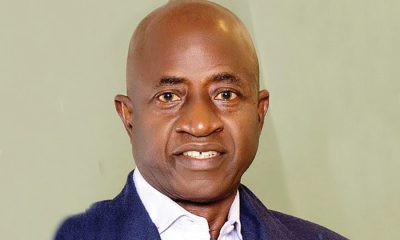
 Sports2 days ago
Sports2 days agoOdegbami speaks on Osimhen breaking his 44-year goals record
-
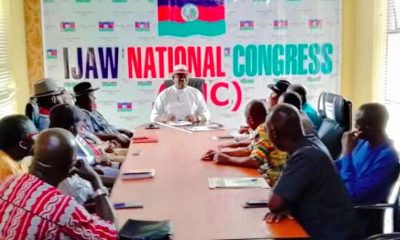
 metro3 days ago
metro3 days agoMore trouble brews in Rivers as Ijaw congress considers self-determination option
-
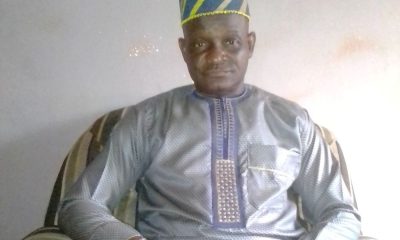
 Entertainment2 days ago
Entertainment2 days agoI didn’t snatch Asake’s mother from her husband -Musibau Alani
-

 Sports2 days ago
Sports2 days ago2026 WCQ: Super Eagles move up to third place with 2-0 win in Rwanda
-

 metro2 days ago
metro2 days agoBoko Haram attacks military base in Adamawa
-

 metro2 days ago
metro2 days agoOluwo accuses Ooni of plotting to dethrone him



